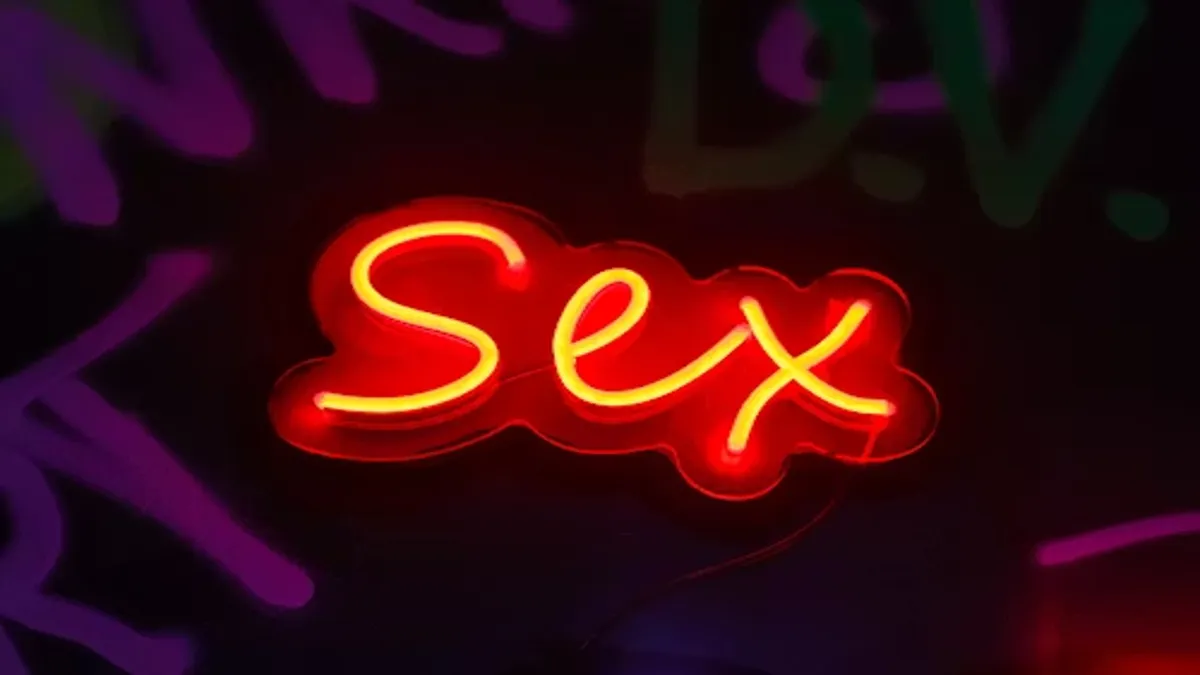If you searched for “Breckie Hill leak controversy,” you’re likely trying to understand how an online rumor evolved into a larger conversation about privacy, fame, and the blurred boundaries of digital identity. Within the first hundred words, here’s the essential truth: the controversy surrounding influencer Breckie Hill is not about explicit content itself, but about what it reveals—how internet culture turns privacy into spectacle, and fame into fragility – Breckie Hill Nude.
Breckie Hill, a rising social media figure known for her short-form videos and bold personality, found herself at the center of an unwanted narrative when rumors of private leaks began spreading online. What started as gossip quickly morphed into a cultural study in real time—about consent, reputation, and the modern machinery of attention.
In an age where virality defines worth, the incident has forced both fans and critics to confront a difficult question: at what point does the public’s right to know become the individual’s right to disappear? – Breckie Hill Nude.
The Rise of a Digital Personality
Breckie Hill’s journey mirrors that of many 21st-century creators—ordinary individuals transformed into public figures through algorithms and audience appetite. Born in the age of smartphones and streaming, she represents a generation fluent in the language of virality: quick humor, bold aesthetics, and the perfect blend of relatability and aspiration.
Her social media presence grew rapidly across platforms, particularly among younger audiences drawn to her confidence and unfiltered approach to self-expression. But as her follower count soared, so did the scrutiny – Breckie Hill Nude.
“Influencers aren’t just personalities—they’re performances of the self,” says digital culture analyst Erin Mason. “And once that performance begins, the audience believes it owns part of you.”
The Breckie Hill controversy did not start with verified content. It began with speculation—anonymous posts, blurred screenshots, and misleading hashtags. Within hours, fragments of rumor became headlines, shared without confirmation, dissected by strangers, and amplified by algorithms designed to reward engagement, not accuracy – Breckie Hill Nude.
The Anatomy of a Leak — When Algorithms Outpace Ethics
To understand how such controversies unfold, one must first examine the architecture of social media itself. Leaks, real or fabricated, spread through a predictable sequence of amplification—each stage reflecting the tension between human curiosity and technological acceleration.
How a Digital Scandal Spreads
| Stage | Description | Consequence |
|---|---|---|
| 1. Spark | Anonymous post or rumor surfaces on niche platform | Curiosity fuels sharing |
| 2. Amplification | Influencer gossip accounts repost without verification | Virality increases exponentially |
| 3. Algorithmic Push | Platforms detect high engagement and promote the topic | Rumor becomes mainstream |
| 4. Public Reaction | Audiences debate, meme, and moralize | Emotional noise outweighs fact |
| 5. Reputation Fallout | Subject’s image reshaped beyond their control | Permanent digital footprint |
“The internet doesn’t wait for truth—it rewards momentum,” says cybersecurity expert Jonathan Lee.
This pattern shows that what drives such controversies isn’t necessarily malice, but mechanism. The architecture of platforms encourages emotional engagement, rewarding users for clicks and outrage more than nuance or context – Breckie Hill Nude.
The Psychology of Curiosity — Why We Click
Human curiosity is ancient, but the internet has weaponized it. Studies in digital behavior reveal that scandal, particularly when it concerns public figures, activates the same reward systems in the brain as gambling or social validation. The promise of “exclusive information” becomes a psychological trigger.
For young influencers like Breckie Hill, whose fame is rooted in visibility, this dynamic creates a paradox: their livelihood depends on attention, yet attention can destroy them. The line between being seen and being exposed is thinner than ever.
“Fame in the digital age is no longer about achievement,” writes sociologist Dr. Elina Kostov. “It’s about sustained presence. The problem is that presence comes with surveillance.”
This surveillance is often voluntary—audiences and creators engage in a symbiotic exchange of access. But when private content, whether real or falsified, enters this cycle, the exchange becomes coercive. What once was a brand becomes a battleground – Breckie Hill Nude.
The Ethics of Sharing — The Audience’s Role
Every viral scandal depends on one thing: participation. The click, the share, the comment—these micro-actions collectively determine what trends and what fades. The Breckie Hill controversy raises the question of moral responsibility in the age of reposting.
Digital citizenship now involves choices that seem trivial but are deeply consequential. Reposting an unverified image, reacting to a rumor, or engaging in mockery contributes to the digital permanence of harm.
“The crowd is the new publisher,” observes media ethicist Paul Denson. “Each share is an editorial choice—even if users don’t see it that way.”
While traditional journalism has long been bound by codes of verification, social media users operate in a moral vacuum of immediacy. The collective impact of millions of micro-decisions often exceeds that of professional news outlets – Breckie Hill Nude.
The Female Body in the Algorithmic Age
One cannot discuss this controversy without confronting gender dynamics. Female influencers, particularly those in lifestyle or beauty niches, often find themselves targeted through their own image. Society still struggles to separate a woman’s ownership of her body from the audience’s entitlement to it.
When leaks or rumors surface, public discourse quickly splits: admiration turns to accusation, support to suspicion. The digital gaze shifts from celebration to surveillance, and autonomy becomes conditional.
“Online culture still punishes women for visibility,” says feminist writer Alisha Granger. “When a woman monetizes her image, she’s seen as complicit. When that image is violated, she’s seen as responsible.”
Breckie Hill’s experience, while unique in its specifics, is emblematic of a broader societal double standard: women in digital spaces are simultaneously commodified and condemned for the same act of self-expression.
Parasocial Relationships — When Fans Feel Ownership
The rise of influencer culture has also created parasocial intimacy—a one-sided relationship in which followers feel personally connected to someone they’ve never met. In such dynamics, boundaries dissolve. Fans feel entitled to details of an influencer’s personal life, often mistaking accessibility for consent.
When controversies arise, this intimacy mutates into betrayal. Audiences who once idolized the influencer may feel deceived, while detractors feel justified in their invasion of privacy.
“Parasocial bonds are fragile because they lack reciprocity,” explains psychologist Dr. Marvin Tate. “The follower believes they’re part of a relationship that doesn’t exist.”
These imagined relationships amplify public reaction, transforming a private violation into a global performance.
Legal and Digital Boundaries — The Cost of Exposure
The modern internet operates faster than the legal systems that govern it. When leaks or fabricated material surface, the path to redress is complex and often futile. Once content has been replicated, even deletion cannot undo its proliferation.
Many countries have implemented “Right to Be Forgotten” laws, allowing individuals to request removal of false or defamatory information. However, enforcement remains inconsistent across borders.
Legal Challenges in Online Privacy
| Issue | Description | Difficulty |
|---|---|---|
| Content Replication | Leaked or false material spreads across multiple sites | Nearly impossible to remove fully |
| Jurisdiction | Platforms based in different countries follow varying laws | Legal fragmentation |
| Proof of Harm | Victims must demonstrate reputational or emotional damage | Subjective and slow |
| Anonymity of Offenders | Many leaks originate from unidentified sources | Difficult to prosecute |
The digital footprint of such controversies becomes a lasting scar. Even years after resolution, search results and online archives can continue to shape perception.
Media Responsibility — Between Reporting and Exploitation
While individual users play a role, the media’s response often determines whether a controversy escalates or subsides. Tabloid-style reporting, particularly in digital entertainment coverage, tends to prioritize virality over verification. Headlines framed as questions (“Did Breckie Hill’s content leak?”) exploit ambiguity while avoiding accountability.
Responsible journalism, however, focuses on context, consent, and correction—reporting on the existence of a controversy without reproducing harm.
“The role of the press is not to amplify voyeurism,” says editor Marcus Lang of Digital Ethics Review. “It’s to interrogate why voyeurism exists in the first place.”
In this case, ethical outlets used the incident as a springboard to discuss broader issues of privacy, gender, and accountability, shifting focus from speculation to systemic critique.
The Machinery of Fame — When Exposure Becomes Currency
The digital economy rewards visibility above all. For many influencers, engagement translates directly to income. This creates a dangerous overlap between exposure and exploitation—a system where even scandals can generate profit.
Algorithms cannot distinguish between negative and positive attention. Each comment, share, or reaction increases reach. Thus, controversies, even those born from harm, often inflate an influencer’s metrics temporarily.
“The internet doesn’t care why you’re trending,” notes social media strategist Carla Jensen. “It only measures how much.”
For creators like Breckie Hill, the paradox is painful: defending oneself can feed the very cycle of virality that caused harm. Silence can protect dignity but risks narrative loss; response can reclaim control but may invite further intrusion.
The Public’s Fascination with Scandal
Why does scandal persist as a cultural obsession? From classic Hollywood gossip columns to TikTok exposés, the public has always been drawn to celebrity vulnerability. But online scandals democratize that voyeurism—anyone can now participate, speculate, and moralize.
The internet’s promise of proximity gives users the illusion of access, and scandal becomes a communal ritual of judgment and justification.
“Every scandal online becomes a morality play,” says media historian Dr. Owen Castillo. “The influencer is cast as both saint and sinner, depending on who’s watching.”
This collective participation transforms private misfortune into public entertainment—a pattern that reveals more about society’s appetites than its subjects.
Digital Recovery — The Art of Reclaiming Identity
In the aftermath of such controversies, recovery becomes as much a public act as the fall. Breckie Hill, like many influencers before her, faced the challenge of reclaiming narrative agency in a space designed to remember everything.
Rebuilding reputation requires strategic transparency—acknowledging harm without perpetuating it. Influencers who recover often do so by shifting focus from defense to creation, turning personal pain into collective discourse.
“Redemption online isn’t about apology—it’s about consistency,” says brand consultant Lena Chow. “The audience forgives those who keep showing up authentically.”
For Breckie Hill, continued creative output, renewed collaborations, and community engagement allowed her to reframe herself not as a victim of rumor, but as a survivor of it.
The Broader Lesson — Privacy in the Age of Public Everything
The Breckie Hill controversy is not an isolated incident; it’s a reflection of a world where privacy has become a luxury and exposure a default setting. The line between personal brand and personal life is nearly invisible for those who live online.
Technology continues to blur these boundaries. With every new platform promising connection, the potential for exploitation grows. The internet never forgets, but it rarely forgives—and the architecture of attention ensures that mistakes, real or imagined, echo indefinitely.
As audiences, the responsibility now lies in restraint: resisting the reflex to click, question, or consume without thought.
Toward a Culture of Digital Empathy
If there’s one lesson from the Breckie Hill saga, it’s the need for digital empathy—a cultural shift that prioritizes consent over curiosity. Empathy does not mean silence; it means awareness of consequence.
Steps Toward Ethical Engagement
- Pause before sharing. Verify authenticity before amplifying harm.
- Consume consciously. Separate gossip from journalism.
- Support repair. Allow public figures to evolve beyond controversy.
- Protect privacy. Treat digital exposure as real-world violation.
“The solution to digital harm isn’t censorship,” writes tech ethicist Nisha Patel. “It’s mindfulness—relearning the difference between information and intrusion.”
When we cultivate empathy, virality loses its cruelty and regains its humanity.
Conclusion — The Price of Virality
The Breckie Hill leak controversy stands as a cautionary tale for both creators and consumers. It shows how quickly the machinery of virality can turn personal vulnerability into public property, and how fame—once the goal of the digital age—can become its greatest liability.
But it also underscores resilience. In navigating the storm, Breckie Hill’s experience reveals that influence is not defined by controversy, but by what follows it. Her continued presence online is not a return to normalcy—it’s a reclamation of agency in a space that too often denies it.
The internet rewards attention; humanity requires compassion. The future of digital culture depends on which one we choose to value more.
“We built a world where everyone can be famous,” says writer Gabriel Torres. “Now we must learn how to be kind to those who are.”
And that, perhaps, is the quiet revolution still waiting to begin—the shift from voyeurism to vigilance, from rumor to responsibility, from the endless scroll to the thoughtful pause that says: this story deserves care.











